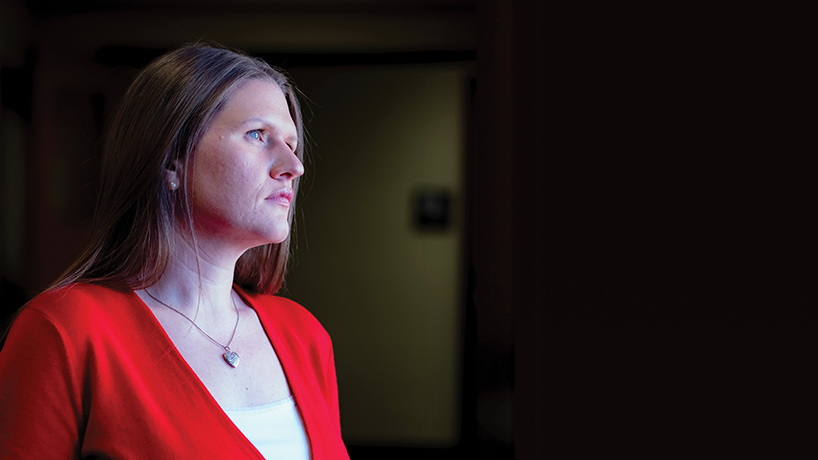
Assistant Professor of Social Work Erica Koegler researches sex and labor trafficking in the midwest. (Photo by August Jennewein)
What role do social workers or social service agencies play in identifying victims and traffickers?
They are predominantly the ones who are identifying and referring victims to trafficking-specific services more so than community members. They see people who are vulnerable on a regular basis, so they have the opportunity to identify them.
What makes the Midwest fertile ground for trafficking?
I think the highway system. Both St. Louis and Kansas City, Highway 70 goes through them. We do have agriculture. We do have major sports and restaurants. There are all sorts of areas that people could be exploited in, and then additionally, there are high rates of poverty that make us vulnerable for being a source of trafficking.
You plan to do research with the University of Western Cape in South Africa. What will you be studying?
We’ll be talking to social service providers. In trafficking, you always want the voice of the victims, but they’re vulnerable. You don’t want to potentially retraumatize them if it’s not necessary. That’s why we’re not talking to survivors or victims, and we’re doing it with providers because they can see trends and experiences across their caseloads. We’re going to be specifically asking about substance use among victims and survivors and their legal needs.
How do victims start to transition back to normal life?
What do people need to recover from this kind of crazy extreme trauma? Immediately afterward, you need stability. You need housing. There’s not enough housing in St. Louis or Missouri for trafficking survivors. You need to get your physical health better. You need to sleep for a little while because you’ve been so traumatized and alert. You need your physical health; your mental health comes later. The crisis is different than the long-term recovery.
If you can help encourage a survivor to stay in recovery long enough, they may need substance use treatment. With foreign-born labor trafficking, there are T visas to keep them here legally. So many things, but the primary things I’m hearing from providers in St. Louis are housing and long-term education. Survivors need a form of income. If they don’t have economic opportunities going forward, they might be revictimized.
This story was originally published in the spring 2020 issue of UMSL Magazine. If you have a story idea for UMSL Magazine, email magazine@umsl.edu.














